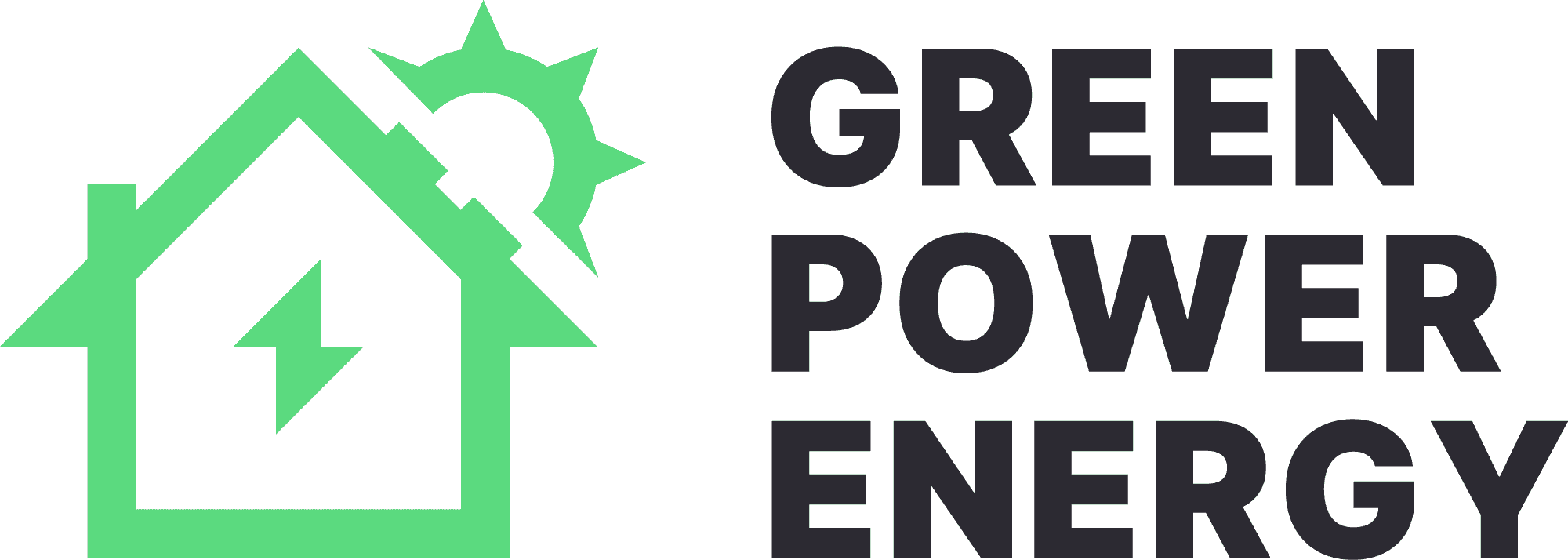 Reviews
Reviews
Connecticut Solar Incentives (Rebates, Tax Credits & More in 2024)
In this Connecticut solar incentives guide, we’ll answer:
- What solar incentives can Connecticuters take advantage of in 2022?
- How much can solar rebates and incentives save me when I go solar in Connecticut?
- How can I apply for each solar incentive available in Connecticut?
Each product and or company featured here has been independently selected by the writer. You can learn more about our review methodology here. If you make a purchase using the links included, we may earn commission.
Do Connecticut Solar Incentives Make It Affordable for Homeowners to Go Solar?
The average cost of going solar in Connecticut is $3.49 per watt, $0.16 higher than the national average. Considering the average household’s energy consumption in the state, a solar panel system in CT comes out to around $26,175 before any incentives or credits are applied. Making going solar in Connecticut absolutely worth it!
However, all Connecticut residents are eligible for the federal tax credit, worth 30% of the total cost of their solar panel system. This is in addition to other solar incentives available to homeowners in the state like sales and property tax exemptions, solar loan programs and the Residential Renewable Energy Systems Program.
These incentives make going solar more affordable in Connecticut. According to the Solar Energy Industries Association (SEIA), Connecticut is relatively solar-friendly and promotes solar conversion more effectively than most states.1

Green Power Energy

Regional Service
Average cost
Pros
- Educational, no-pressure sales approach
- Outstanding customer service
- Multitude of products and services
Cons
- Relatively young company

Blue Raven Solar
Pros
- Industry-leading in-house financing
- Competitive pricing
- Excellent reputation
Cons
- Doesn't offer solar batteries (coming 2022)

Momentum Solar
Pros
- Great warranty coverage
- Concierge service ensures steady communication
- Representatives are experts on local policies
Cons
- Slightly limited service offerings
- Only available in 11 states
We’ll go into more detail about each of the solar incentives available in Connecticut below.
| Solar Incentives in Connecticut | Incentive Type | Description | Occurrence | Estimated Dollar Amount You Can Receive |
| Federal Solar Investment Tax Credit (ITC) | Federal | All U.S. homeowners are eligible to get 30% of the total cost of their solar panel system back on their federal tax returns. | Applies to your federal tax returns, and will roll over for up to 5 years | On average, $7,853 in Connecticut |
| Sales and Use Tax Exemption for Solar and Geothermal Systems | State | Anyone in Connecticut who is purchasing solar equipment can qualify for a sales tax exemption. | At the time of purchase for solar equipment and services | On average, $1,662 for a solar panel system in CT |
| Property Tax Exemption for Renewable Energy Systems | State | Connecticut’s property tax exemption ensures that your property taxes will not go up after you install solar panels. | Automatically applies to your taxes annually after you submit your application | Potentially thousands of dollars over the lifespan of your solar panels |
| Solar Loan Programs | State | There are several state-funded solar loan programs that make solar more accessible through low-interest rates and no-money-down options. | Over the lifespan of your solar loan | Depends on the value of the loan and your interest rate |
| Residential Renewable Energy Solutions (Replaced Connecticut’s net metering program) | State | The Residential Renewable Energy Solutions Program replaced CT’s net metering program. It utilizes tariffs to compensate homeowners for excess solar energy their system generates. Customers opt-in to one of two tariff structures. | Monthly | Netting tariff: The retail rate of the excess energy generated by your solar panels, plus $0.0318 per kWh generated by your panels for RECs (for Eversource customers) OR Buy all tariff: $0.2943 per kWh your solar panels generate 2 |
| Local incentives | Local | Some local governments offer solar incentives in addition to state incentive programs. | Varies | Varies |
What Do Connecticut Residents Need to Know About the Federal Solar Tax Credit?
The most attractive incentive available to Connecticut residents is the federal solar investment tax credit, commonly abbreviated as “ITC”. This credit is for 30% of your system cost and gets deducted from your federal income taxes owed — or paid via check if you get money back. In Connecticut, where the average solar system cost is $26,175, that’s a typical rebate of $7,853.
U.S. homeowners are eligible for the 30% tax credit through 2032. The credit will decrease to 26% in 2033 and 22% in 2034 before it’s phased out in 2035.
We should mention that the ITC is not a solar rebate but rather a tax credit. That means that you won’t see any value from this incentive unless you owe money on your income taxes. If you owe at least $7,853 the year you go solar, then you can take the entire credit at once and reduce your income taxes by that amount. You can also take the entire credit over five years if you owe at least $1,570 per year for five years.
Additionally, we foresee solar batteries become much more of a necessity in the coming years in Connecticut, as we expect the net metering policy to decline as it has in other states. If and when that happens, solar batteries will be the only way for customers to get access to effective one-to-one net metering, making them a necessity for maximizing solar savings. Batteries add between $10,000 and $20,000 to your installation costs, in most cases, so the credit could hold an additional $3,300 to $6,600, on average, if you also install batteries with your panels.
How to Claim the Federal ITC in Connecticut
You’ll claim the Solar Tax Credit on your federal tax return. If you’re doing your own taxes, here’s how you claim your credit:
- Download and complete the IRS Form 5695. On lines 6a and 6b, you’ll fill out the cost of your solar application and calculate your credit. If you need help completing the necessary forms, your solar installer or a CPA can assist you.
- On IRS Form 1040, fill out your Schedule 3 using the figures you calculated on line 15 of the 5695 form.
For a complete guide on how to apply for the federal solar tax credit, go to the IRS.gov website. It’s best to consult with a tax expert and your solar panel installer when applying for the ITC.
EcoWatch’s Opinion on the Federal ITC in Connecticut
Worth 30% of the total solar system cost, The Federal ITC is the largest solar incentive available to Connecticut residents.
That being said, you will only recognize the full benefit of the solar tax credit if you expect to pay several thousand dollars in federal taxes within the five years following your solar panel installation. After five years, the tax credit will no longer roll over on your federal tax return.
Additionally, if you have a solar lease or power purchase agreement (PPA), you will not qualify for the Federal ITC.
Sales and Use Tax Exemption for Solar and Geothermal Systems in Connecticut
Connecticut’s Sales and Use Tax Exemption for Solar and Geothermal Systems prevents you from having to pay sales tax on renewable energy equipment. Normally, the standard tax rate of 6.35% would apply to solar panels, battery storage options, inverters, mounting equipment, installation services and any other part of your solar power system.3
The sales tax exemption prevents you from having to pay that tax, saving homeowners an average of $1,662 in upfront costs.
How to Claim Sales and Use Tax Exemptions for Solar and Geothermal Systems in Connecticut
To claim the sales and use tax exemption for renewable energy equipment and services in Connecticut, you must:
- Fill out form CERT-140 from the Connecticut Department of Revenue Services.
- Present the form to the seller of your solar equipment or services at the time of purchase.
EcoWatch’s Opinion on Sales and Use Tax Exemptions for Solar and Geothermal Systems in Connecticut
Connecticut’s sales tax exemption on renewable energy systems is an easy way to save money upfront on the cost of going solar.
Solar saves most homeowners money on their energy bills in the long run, and tax credits and other solar financial incentives also offer a monetary return. However, tax exemptions are great because they allow you to save money right away, at the time you purchase your solar equipment.
For an average-sized solar panel system in Connecticut, homeowners would save $1,662 in sales tax with this exemption.
Watch Below: Why Are Solar Batteries Important and Will CT Pay You To Install One?
Property Tax Exemption for Renewable Energy Systems in Connecticut
Connecticut also offers a property tax exemption for renewable energy systems, including solar panels. Installing solar panels can cause your home’s value to increase, which would typically lead to an increase in your property taxes as well. However, Connecticut’s exemption ensures that your property taxes won’t go up after you install solar panels.
The state of Connecticut requires that all “passive or active solar heating systems or geothermal energy resources” be exempt from property taxes. However, whether or not “active solar cooling systems” are exempt from property taxes is up to the discretion of each locality.4
Overall, solar homeowners could save thousands of dollars in property taxes over the lifespan of their solar panels with the property tax exemption.
How to Claim Property Tax Exemptions for Renewable Energy Systems in Connecticut
Although the state of Connecticut mandates property tax exemptions for renewable energy systems statewide, you will file your claim locally. Therefore, the application process will look slightly different depending on what town you live in.
You must file your exemption claim with your tax assessor or board of assessors in the town where your renewable energy system is located. You must file your claim before November 1 of the assessment year for the exemption to be applied to your taxes in time.
You do not have to reapply each year for this program. You would only reapply if you make major alterations to your solar (or other renewable energy) system.
To get started, contact your local tax assessor. You can find the tax assessor officers in your town here.
EcoWatch’s Opinion on Property Tax Exemptions for Renewable Energy Systems in Connecticut
A property tax exemption on your solar panels can save you thousands of dollars in taxes over the lifespan of your system. Most residential photovoltaic systems are eligible for this exemption.
However, some exemptions are left up to the discretion of each locality in Connecticut, and exemption claims are handled locally.5 Therefore, you’ll want to make sure to discuss your individual situation with a local tax assessor to make sure your claim is filed correctly.
Solar Loan Programs in Connecticut
One of the most effective ways Connecticut makes this renewable energy source so accessible is through state-funded solar loan programs. These often supply homeowners with no-money-down options and low interest rates to minimize the long-term energy costs of solar PV systems.
Here are some of the top solar loan programs available in Connecticut:
- Smart-E Loans: The Connecticut Green Bank, Energize CT and local lenders have partnered to create Smart-E Loans, which provide a slew of benefits to those financing their solar energy systems. They have a low APR, require little money down and have no penalty for prepayment.6
- Home Energy Solutions Loan Program: This program is geared toward low- and middle-income residents.7 While the loans from this program aren’t specifically for solar equipment, they can be used for energy-efficiency upgrades including new insulation and windows. This ultimately makes your solar system more valuable because your home will be using less energy. That way, you can install a smaller solar system or earn more from the excess energy your panels generate.
- Energy Conservation Loan: Also provided by Energize CT, this loan program provides solar financing solutions for energy-efficiency upgrades and new construction that follows program guidelines in terms of home efficiency. You can use these loans for hot water heaters, gas water heating, HVAC equipment, new insulation and some renewable energy technology.8
- PACE Financing: Finally, Connecticut homeowners and business owners have access to PACE financing. PACE loans stay with the property, not the property owner, and they’re secured by your local municipality or government bonds, so they’re generally available even to solar customers who don’t have good credit. These loans are affordable and have a low interest rate to make solar financing as accessible as possible.9
How to Claim Solar Loans in Connecticut
The application process for solar loans in Connecticut will vary depending on which loan program you hope to qualify for. For more information and instructions on how to apply to each of the loan programs listed above, visit the program’s respective website:
EcoWatch’s Opinion on Solar Loans in Connecticut
Low-interest solar loans can make solar accessible to homeowners that otherwise would not be able to afford to install solar. Before committing to a loan, we strongly recommend comparing the qualities of different loan options, including the interest rate, down payment and the loan term (how long you’ll be paying the loan for).
We should also mention here that solar loans are going to hold more value and become more prominent in the solar industry in the coming years, in our opinion, whereas right now they are largely a luxury. As net metering policies continue to decline — most notably in California in 2024 — batteries are going to be the only way for more and more customers to get effective net metering. They’ll become more valuable and necessary for maximizing savings over time.
When that happens, installation costs will rise by between $10,000 and $20,000, decreasing accessibility and making solar loans more valuable.
Net Metering in Connecticut
As of January 1, 2022, Connecticut’s Public Utilities Regulatory Authority (PURA) replaced the state’s net metering policy and residential solar incentive program with the Residential Renewable Energy Solutions Program.10
This program allows homeowners to earn money from the excess electricity their solar panels generate under one of two incentive tariff structures:
- Buy-all tariff: UI or Eversource Energy will purchase the electricity and Renewable Energy Certificates (RECs) that your solar panel system generates.
- Netting tariff: UI or Eversource Energy will purchase RECs generated by your solar panel system and will provide monetary credits on your electric bill for excess energy that is sent to the grid from your panels.11 These credits are worth the retail rate of each kilowatt-hour (kWh) of energy sent back to the electric grid.
Those living in low-income households will receive an additional $0.025 per kWh their solar panels generate. Those living in “distressed municipalities” will receive an additional $0.0125 per kWh.12
Homeowners who installed solar before December 31, 2021, will still be eligible for net metering until 2039.13
Eversource Energy and United Illuminating (UI), the main energy providers in the state, administrate the Residential Renewable Energy Solutions Program.
How to Enroll in Net Metering in Connecticut
The Connecticut Net Metering Program no longer accepts new applications. Instead, you should apply to the Residential Renewable Energy Solutions Program. This program offers similar benefits through a tariff system.
Your solar installer should apply for this program for you through an interconnection application with your electricity provider.
To get started with the interconnection process with Eversource, click here. To get started with UI, click here.
EcoWatch’s Opinion on Net Metering in Connecticut
Although Connecticut’s statewide net metering program was phased out in favor of the Residential Renewable Energy Solutions Program, the new program is similar to net metering in many ways, and offers a similar level of incentives.
How much you earn from the Residential Renewable Energy Solutions Program can vary depending on your energy provider, household income level, and the type of tariff structure you choose. Therefore, you should speak with your solar provider about your individual needs when applying for the Residential Renewable Energy Solutions Program.
It’s important to note that net metering policies have been declining across the country. Most recently, California rolled out net metering 3.0, which made the perk far less valuable. We expect similar negative changes to net metering in other states, as well, including Connecticut. When that happens, solar batteries will be more necessary to maximize savings.
Local Solar Incentives in Connecticut
Check with your town’s local government to see if there are any additional solar incentives available where you live.
There are also additional incentives available for low- and middle-income households in CT. For instance, Connecticut’s Solar for All program helps underserved communities go solar and be more energy efficient. As a result, 4,400 families in the state have saved an average of $700 in the first year.14 Learn more about this
What Do Connecticut Residents Need to Know About SRECs?
Under Connecticut’s Renewable Portfolio Standard (RPS), electricity providers must offset some of the energy they generate with clean energy systems. One way that they do this is by selling renewable energy credits (RECs) that home solar panels generate.
Oddly enough, Connecticut does not actually have a REC market. Instead, you’ll earn money for the RECs that your panels generate through your utility provider. You will earn money for your RECs through the netting tariff under the Residential Renewable Energy Solutions Program. The REC rate for Eversource customers is $0.0318 per kWh generated by their solar panels.15
Are SRECs Taxable in Connecticut?
Yes, SRECs are taxable on both a federal and state level. Speak with a CPA or tax expert to decide how to go about paying taxes on SRECs in Connecticut.
Generally, if you make more than $600 of income in a year from RECs, you’ll include this on Form 1099-MISC of your tax return. Otherwise, if you do not have a 1099-MISC form, include your SREC earnings in Miscellaneous, 1099-A, 1099-C under the Wages & Income section of your federal taxes.
For more detailed instructions from TurboTax, click here.
What’s the Near-Term Outlook for More Incentives in Connecticut?
Unfortunately, there are currently no new solar incentives set to be put in place in the near future. However, Connecticut residents will continue to be eligible for the federal solar tax credit, sales and property tax exemptions, solar loan programs and the Residential Renewable Energy Solutions Program for the foreseeable future.
There were also many changes to solar incentive policies in Connecticut in 2022 that encouraged the growth of the solar industry. For instance, the state’s net metering program was replaced with the Residential Renewable Energy Solutions Program which offers more flexible options for homeowners to earn money from the energy their solar panels generate.
Additionally, Connecticut’s PURA introduced an Energy Storage Solutions program in 2022 designed to incentivize energy storage installations, including solar batteries. This will make installing a solar battery with your rooftop system far cheaper.16 This is a huge deal, especially since we foresee net metering getting downgraded or even discontinued in the coming years, which would make solar batteries far more beneficial and potentially even a necessity.
In August 2022, the Biden Administration passed the Inflation Reduction Act, which extended federal solar incentives. The credit is now worth 30% through the end of 2032.
Read More About Going Solar in Connecticut
The cost information presented in this article is derived from a comprehensive analysis, incorporating data from multiple industry sources. The average cost per watt per state was calculated based on figures from Consumer Affairs, Energy Sage, and Berkeley Lab’s Electricity Markets & Policy Department. Additionally, monthly energy consumption and the average monthly cost of electricity were sourced from the U.S. Energy Information Administration, ensuring a well-rounded and accurate representation of the information presented.
FAQ: Connecticut Solar Incentives
At EcoWatch, we frequently get questions from Connecticut homeowners about the solar incentives available in the state and how they can save money on solar conversions. Below are some of the questions we see most often. If you have specific questions that aren’t answered here, reach out to our team of solar experts at solar@ecowatch.com.
Although Connecticut is not proposing to increase incentives for rooftop solar in the next 24 months, residents of the state can still benefit from the federal solar tax credit, solar loan programs, tax exemptions and the Residential Renewable Energy Solutions Program.
The Inflation Reduction Act passed in August 2022 expanded and extended the federal solar tax credit. U.S. residents are now eligible for a 30% tax credit on the total cost of their solar panel system through 2032.
No, Connecticut is not reducing incentives for rooftop solar in the next 24 months.
Top Solar Installers in Connecticut Cities
Comparing authorized solar partners
-
- Educational, no-pressure sales approach
- Outstanding customer service
- Multitude of products and services
- Relatively young company
A+Outstanding Regional Installer
Having trouble deciding? Click below and use our process to receive multiple quotes instead:

 233k
233k  41k
41k  Subscribe
Subscribe 






